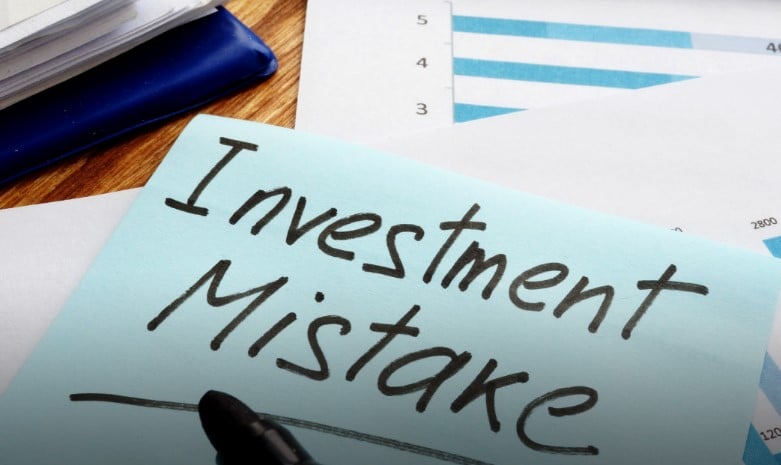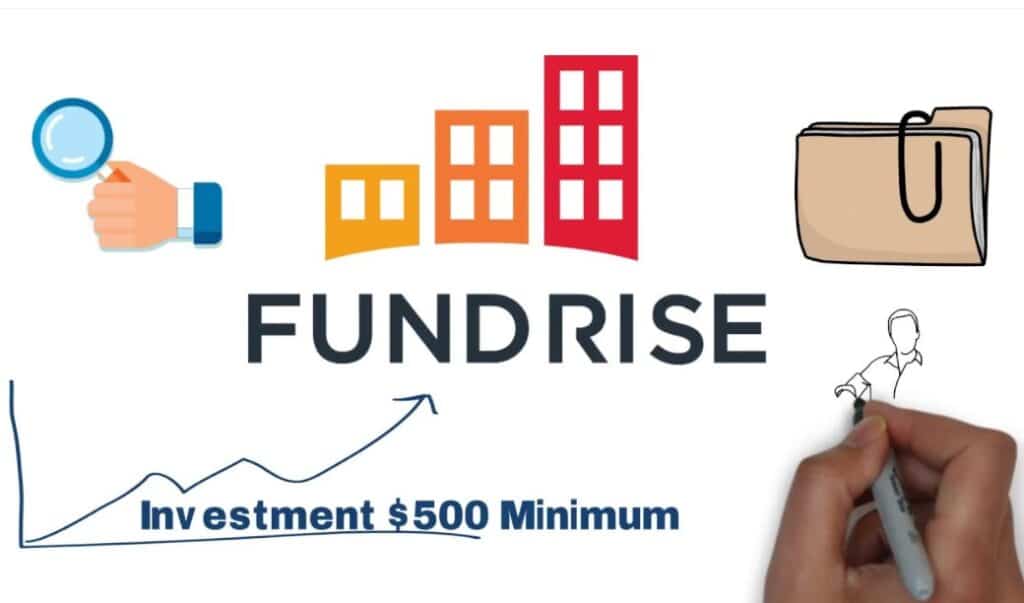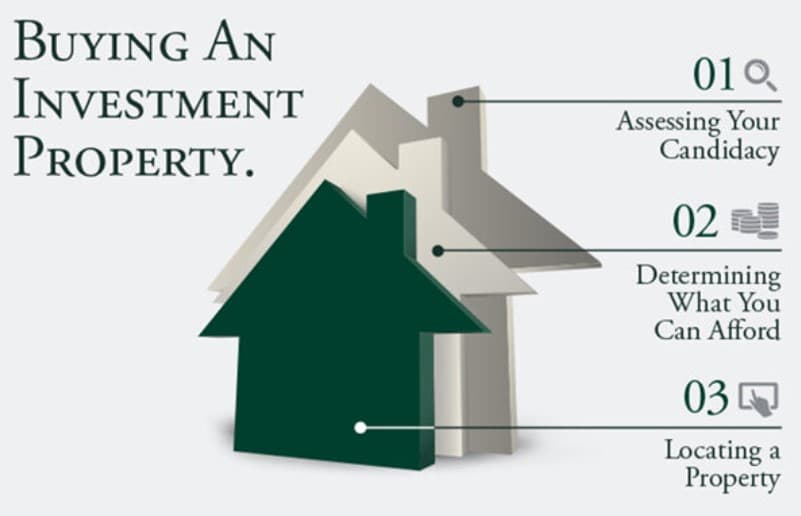Getting started in property investment can seem daunting, especially for beginners who may not be familiar with the process. However, investing in real estate is one of the most reliable ways to build wealth over time.
Whether you are looking to generate passive income through rentals or capitalize on long-term appreciation, property investment offers countless opportunities.
In this site Decor.havenblueprint.com, we’ll cover the basics of property investment, outline strategies for beginners, and provide actionable tips to help you get started in 2024.
Why Start Investing in Property?
Investing in real estate offers several advantages, making it a popular option for both novice and experienced investors. Here are a few key benefits:
- Steady Cash Flow: Rental properties can generate a consistent monthly income, allowing you to build wealth and cover property-related expenses, such as mortgage payments and repairs.
- Property Appreciation: Over time, the value of property generally increases, providing capital gains when you decide to sell.
- Tax Advantages: Real estate investors can enjoy tax benefits, including deductions for mortgage interest, property taxes, and maintenance expenses.
- Diversification: Adding property to your investment portfolio reduces risk by diversifying your assets, protecting against fluctuations in other markets.
You can also read : Top Real Estate Investment Companies: Grow Your Portfolio Today
Property Investment Tips for Beginners

Start Small
As a beginner, it’s advisable to start with a small investment to limit your financial exposure and risk. ‘
Opting for a single-family rental property or a small multi-family building allows you to learn the ropes of property management while generating rental income. Once you’ve gained experience and confidence, you can scale your portfolio.
Starting small in real estate investing allows you to minimize risks while gaining valuable experience.
A single-family rental or a small multi-family property is easier to manage, requires less capital, and typically attracts stable tenants.
By focusing on a smaller investment, you can learn the fundamentals of property maintenance, tenant relations, and cash flow management without becoming overwhelmed.
Benefits:
- Lower financial risk and initial investment
- Easier to manage than larger properties
- Provides an opportunity to build equity gradually
Focus on Cash Flow
Cash flow is one of the most critical factors in property investment. Ensure that your rental property generates enough monthly income to cover expenses such as mortgage payments, taxes, and repairs, with additional income left over.
Positive cash flow provides long-term financial stability and allows you to reinvest profits. Focusing on cash flow is essential for successful property investment.
Positive cash flow occurs when the monthly income from rent exceeds the expenses associated with owning the property, including mortgage payments, property taxes, insurance, repairs, and maintenance.
This ensures that your investment is self-sustaining and profitable.
Benefits:
- Stable, recurring income stream
- Long-term profitability and reinvestment opportunities
You can also read : Best Investment Property: Top Deals for Profitable Returns
2How to Start Property Investment with Little Money
You don’t need a large amount of capital to start investing in real estate. Here are a few ways to begin property investment with limited funds:
House Hacking
House hacking involves purchasing a multi-unit property, living in one unit, and renting out the others.
The rental income from tenants can cover part or all of your mortgage, reducing your monthly housing costs while building equity in the property.
House hacking strategies provide a unique way to enter real estate investing while lowering living expenses.
By choosing a duplex, triplex, or even a single-family home with an accessory dwelling unit (ADU), homeowners can generate passive rental income that contributes to mortgage payments and property upkeep.
This approach not only reduces housing costs but also accelerates wealth-building through property appreciation and equity gains, making it an attractive option for first-time buyers and aspiring investors alike.
Benefits:
- Lowers your living expenses
- Helps build equity quickly
- Provides experience in property management
Where to Start: You can explore house hacking opportunities on Roofstock or Realtor.com.
Real Estate Crowdfunding
Real estate crowdfunding platforms allow you to invest in real estate projects with relatively small amounts of money.
By pooling your funds with other investors, you can gain exposure to larger properties and projects without the need for significant upfront capital.
Real estate crowdfunding has revolutionized the way individuals can invest in property, enabling participation in real estate projects with relatively small amounts of money.
Through online platforms, investors can pool their funds with others, gaining access to larger properties and lucrative projects that would typically require significant upfront capital.
This approach not only democratizes real estate investing but also diversifies your investment portfolio, as you can spread your investment across multiple projects.
Additionally, many crowdfunding platforms offer detailed information about the properties and their potential returns, allowing investors to make informed decisions.
By leveraging real estate crowdfunding, you can explore new investment opportunities while minimizing financial risk and expanding your market reach.
Benefits:
- Low minimum investment
- Passive income through dividends
- Diversified real estate portfolio
Where to Start: Popular platforms include Fundrise and Crowdstreet.
You can also read : Top VRBO Owner Resources: Manage Vacation Rental
Property Investment Mistakes to Avoid

Overlooking Property Management Costs
Managing a property requires time, effort, and money. Property management involves handling tenant issues, repairs, and routine maintenance. Many new investors overlook these ongoing costs, which can quickly eat into profits.
Tip: If you’re not prepared to manage a property yourself, consider hiring a property management company, but be sure to factor these costs into your ROI calculations.
Failing to Research Local Markets
Real estate markets vary significantly between cities and neighborhoods. Failing to research the local market could lead to purchasing in an area with high vacancy rates or declining property values.
Conduct thorough market research to understand property trends, rental demand, and the local economy.
Tip: Use platforms like Zillow or Redfin to analyze neighborhood trends and property values.
You can also read : Invest in Real Estate: Top Opportunities for Maximum Returns
Best Property Investment Strategies for Beginners
Buy-and-Hold Strategy
The buy-and-hold strategy involves purchasing a property and holding it over the long term to benefit from appreciation while generating rental income.
This is the most popular property investment strategy for beginners due to its simplicity and potential for long-term wealth building.
The buy-and-hold strategy is a popular property investment approach where investors purchase a property and hold onto it for the long term, allowing them to benefit from property appreciation while generating consistent rental income.
This strategy is particularly appealing to beginners due to its simplicity and the potential for long-term wealth accumulation.
By holding onto the property for years, investors can take advantage of rising market values and steady rental returns, making it a secure and reliable way to build financial stability over time.
Benefits:
- Steady cash flow through rental income
- Long-term appreciation in property value
- Minimal short-term risk compared to flipping
Fix-and-Flip Strategy
This strategy involves buying distressed properties, renovating them, and selling them for a profit.
While the fix-and-flip strategy can be lucrative, it requires in-depth knowledge of property renovation and market conditions. It is typically best suited for investors with some experience in real estate or construction.
Benefits:
- Potential for high returns in a short period
- Ideal for hands-on investors with renovation experience
- Capitalize on properties sold below market value
Cons:
- Requires knowledge of renovations
- Higher risk compared to buy-and-hold
Real-World Examples of Beginner Property Investments
1. Turnkey Rental Property on Roofstock
Roofstock offers turnkey rental properties that are already leased to tenants, providing immediate cash flow.
These properties are professionally managed, making them a great option for beginners who want to start generating income right away.
Features:
- Fully rented property with professional management
- Immediate rental income and detailed financial analysis
- Minimal involvement in property management
Pros:
- Passive income from day one
- Low management responsibility
- Transparent ROI data before purchase
Price: Varies by property
Where to Buy: Roofstock
2. House Hacking Multi-Unit Property
This house-hacking opportunity involves purchasing a small multi-unit property, living in one unit, and renting out the other units.
Rental income from tenants can significantly reduce your living expenses and help you build equity faster.
Features:
- Multi-unit property with live-in option
- Rental income covers part of mortgage
- Ideal for first-time investors
Pros:
- Reduces personal living costs
- Builds equity while earning rental income
- Provides experience in property management
Cons:
- Involves living in the investment property
- Requires tenant management
Price: Starting at $300,000
Where to Buy: Realtor.com
3. Fundrise Real Estate Crowdfunding

Fundrise allows beginners to invest in real estate with minimal capital by pooling funds with other investors.
Through its eREIT platform, you can invest in large-scale real estate projects, receive quarterly dividends, and benefit from long-term property appreciation.
Features:
- Low minimum investment of $500
- Diversified portfolio of real estate assets
- Passive income through dividends and long-term growth
Pros:
- Accessible to investors with little capital
- Passive income through quarterly dividends
- Diversifies your real estate investments
Cons:
- Less control over specific properties
- Long-term investment horizon
Price: Minimum investment starts at $500
Where to Buy: Fundrise
How to Buy Your First Investment Property
- Set Clear Goals: Determine your investment goals, whether it’s generating immediate rental income or long-term property appreciation. Decide whether you want a hands-on or hands-off approach.
- Secure Financing: Research financing options. First-time investors often start with conventional loans, while others explore house-hacking or real estate crowdfunding for low-cost entry points.
- Research Markets: Conduct thorough market research to find locations with high rental demand, appreciation potential, and low vacancy rates.
- Analyze ROI: Use property investment calculators to estimate potential returns and ensure that the property will generate positive cash flow.
Common Property Investment Myths Debunked
Myth 1: You Need a Lot of Money to Start Investing
Many people believe that you need significant capital to start investing in property. However, strategies like house hacking and real estate crowdfunding allow you to enter the market with minimal funds.
Myth 2: Real Estate Is Too Risky for Beginners
While all investments carry risk, real estate offers more stability compared to stocks and other volatile markets. With the right strategy, even beginners can achieve steady returns.
Myth 3: Property Management is Too Difficult
While managing a property can be time-consuming, there are professional management services and software tools that simplify the process for beginners.
FAQs
Q: How much money do I need to start investing in property?
A: You can start with as little as $500 through real estate crowdfunding or consider house hacking to reduce upfront costs.
Q: What is the best property investment strategy for beginners?
A: The buy-and-hold strategy is ideal for beginners due to its simplicity and potential for long-term wealth building.
Q: How do I avoid common mistakes as a beginner property investor?
A: Conduct thorough research, manage your finances carefully, and avoid overleveraging by keeping debt manageable.
Investing in property offers incredible opportunities for building wealth. By starting small, choosing the right strategy, and conducting thorough market research, beginners can navigate the world of property investment with confidence and success.




